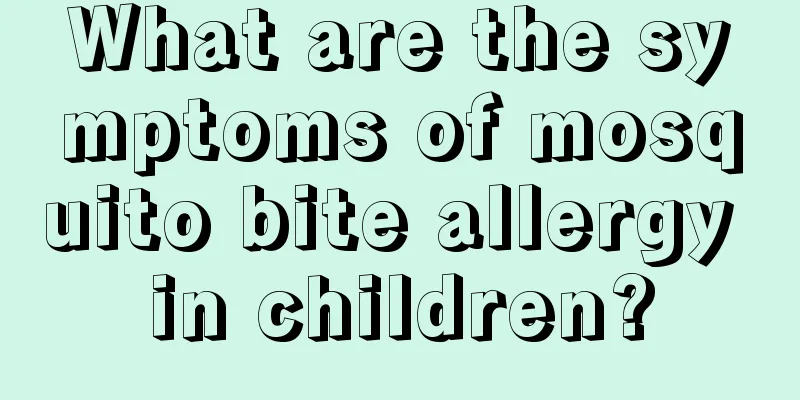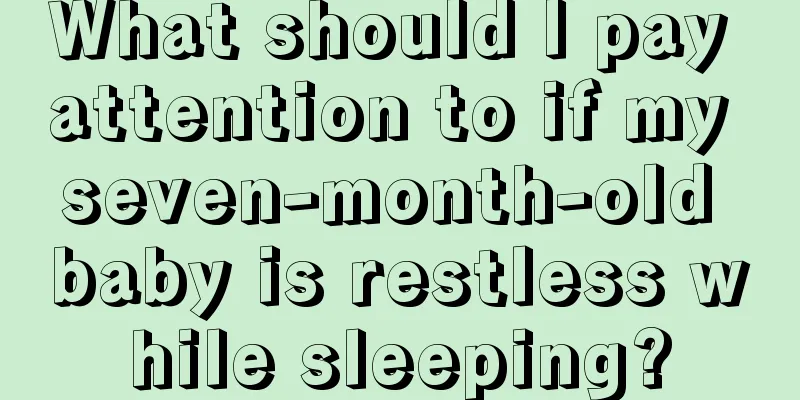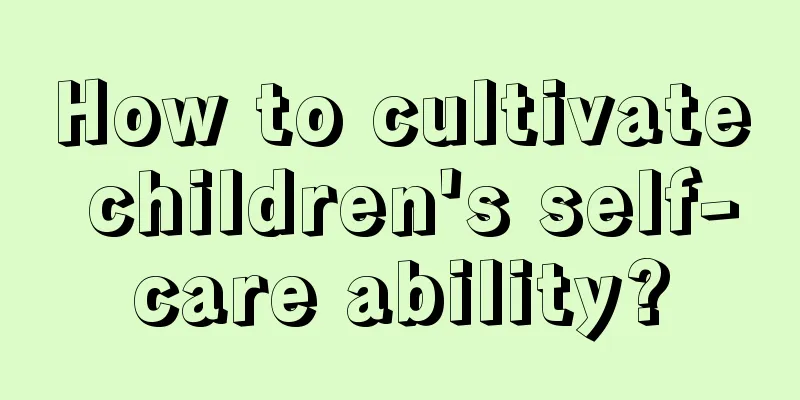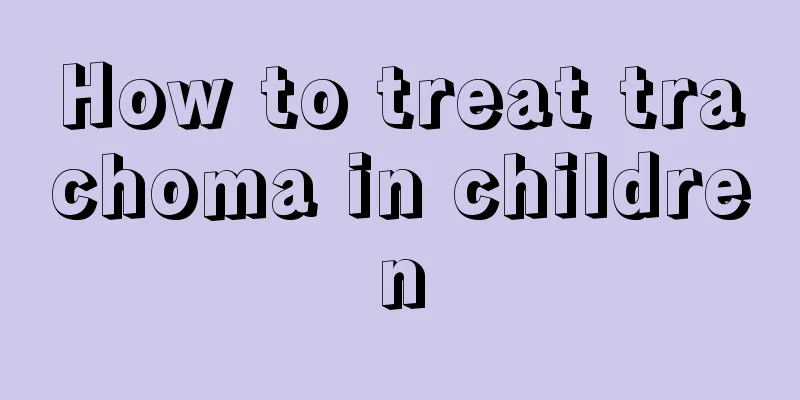The child is crying because of teething

|
Although teething is an important sign of healthy growth, since it is the first time for babies to experience teething, they will experience various uncomfortable reactions. Therefore, many parents find that their babies will cry for a long time during the teething process. Because when babies are teething, they will not only have oral pain but also oral itching. What methods can parents use to relieve the baby's uncomfortable symptoms at this time? What to do when your baby cries while teething It is best to buy a teether or a teething stick for your baby to bite, which will relieve some of the baby's discomfort. Generally, babies start to grow deciduous teeth from April to June, and the lower front teeth are usually the first to grow. After the first pair of deciduous teeth erupt, another pair of teeth will erupt approximately every four months, and by the age of two and a half, all 20 deciduous teeth will have grown. During this period, some babies may experience irritability, poor appetite, restless sleep, drooling, fever, swollen and painful gums, etc. The age of the mother during pregnancy has little to do with the baby's teething, unless the nutrition during pregnancy is not kept up. Insufficient calcium can cause the baby's teething to be delayed, last longer, and cause more discomfort. It is recommended that you take your baby to see a dentist when his or her first tooth grows or when he or she is one year old, and then have a follow-up check-up after 6 months. Parents should first be aware of whether their baby's deciduous teeth erupt too early or too late. Some babies have deciduous teeth as soon as they are born or shortly after birth. These deciduous teeth usually have no roots and are very easy to fall out. If it falls into the trachea, it will cause suffocation to the baby, which is extremely life-threatening. Therefore, if your baby's deciduous teeth erupt too early, you must see a doctor as soon as possible. On the other hand, if the baby has not grown deciduous teeth by the age of one, it may be caused by gingival hypertrophy or rickets, and a comprehensive oral examination should be done as soon as possible. Tips for helping your baby with teething Parents should not panic if their baby may experience any discomfort during teething. They should judge whether they can handle it themselves, otherwise seek medical attention immediately. Fever Some babies will have varying degrees of fever when their teeth begin to erupt. As long as the body temperature does not exceed 38.5℃, and the baby is active and has a good appetite, and does not cry too much, no special treatment is needed, just give the baby more water; if the body temperature exceeds 38.5℃ and is accompanied by irritability, abnormal crying, refusal to eat, diarrhea, etc., an infection may have occurred and medical attention should be sought promptly. Diarrhea Some babies will suffer from diarrhea when they are teething. When the baby's bowel movements increase significantly, you should temporarily stop feeding the baby with easily digestible foods such as porridge or boiled noodles, and pay attention to the disinfection of tableware. If the baby has more than 10 bowel movements a day and the stool is watery, you should seek medical attention in time. Drooling is mostly a temporary symptom of the teething period. Parents should put a bib on their baby and gently wipe the saliva with a handkerchief at any time. Wash the areas where saliva flows frequently with warm water, and then apply oil to protect the skin of the chin and neck. Babies' clothes, pillows, and bedding are often contaminated by saliva, so they should be washed and dried frequently to avoid the breeding of bacteria. Irritable babies cry incessantly, are abnormally irritable, and have restless sleep before their teeth come out. Generally, you just need to give them teething biscuits to chew and divert their attention, or let them eat something cool, such as yogurt, and they will feel more comfortable. |
<<: Will teething cause bleeding in babies?
>>: Child breathing through mouth
Recommend
Is herpes virus contagious in children?
Children's physical resistance is relatively ...
Is it normal for a newborn to sleep through the night?
Babies are the apple of their parents' eyes. ...
Can children eat MSG?
Whether children can consume MSG is a question th...
Reasons for gurgling abdominal sounds in children
When children's lower abdomen rumbles, many p...
What should we do if our child has anorexia?
In today's life, many children suffer from an...
Symptoms of scrotal edema in newborns
Many parents will notice the phenomenon of scrota...
What to do if a baby has a fever and convulsions?
When a child has a persistent high fever, convuls...
What exactly is going on with my baby's cough and wheezing?
Many new mothers become very anxious when they fi...
How to stop a baby's constant cough?
When mothers see their babies coughing, they shou...
Diet therapy for ADHD in children
Attention Deficit Hyperactivity Disorder in child...
What causes a baby to walk with crooked feet?
Seeing the baby start to learn to walk, the whole...
What are the dangers of antibiotics to babies?
Children generally have low resistance, and they ...
Large flat rashes on the child's body
Large bumps are generally suspected to be urticar...
What causes dark circles under girls' eyes?
Generally speaking, lesbians will not have dark c...
Why is there pus coming out of the newborn's belly button?
When a newborn is just born, it is important to t...









